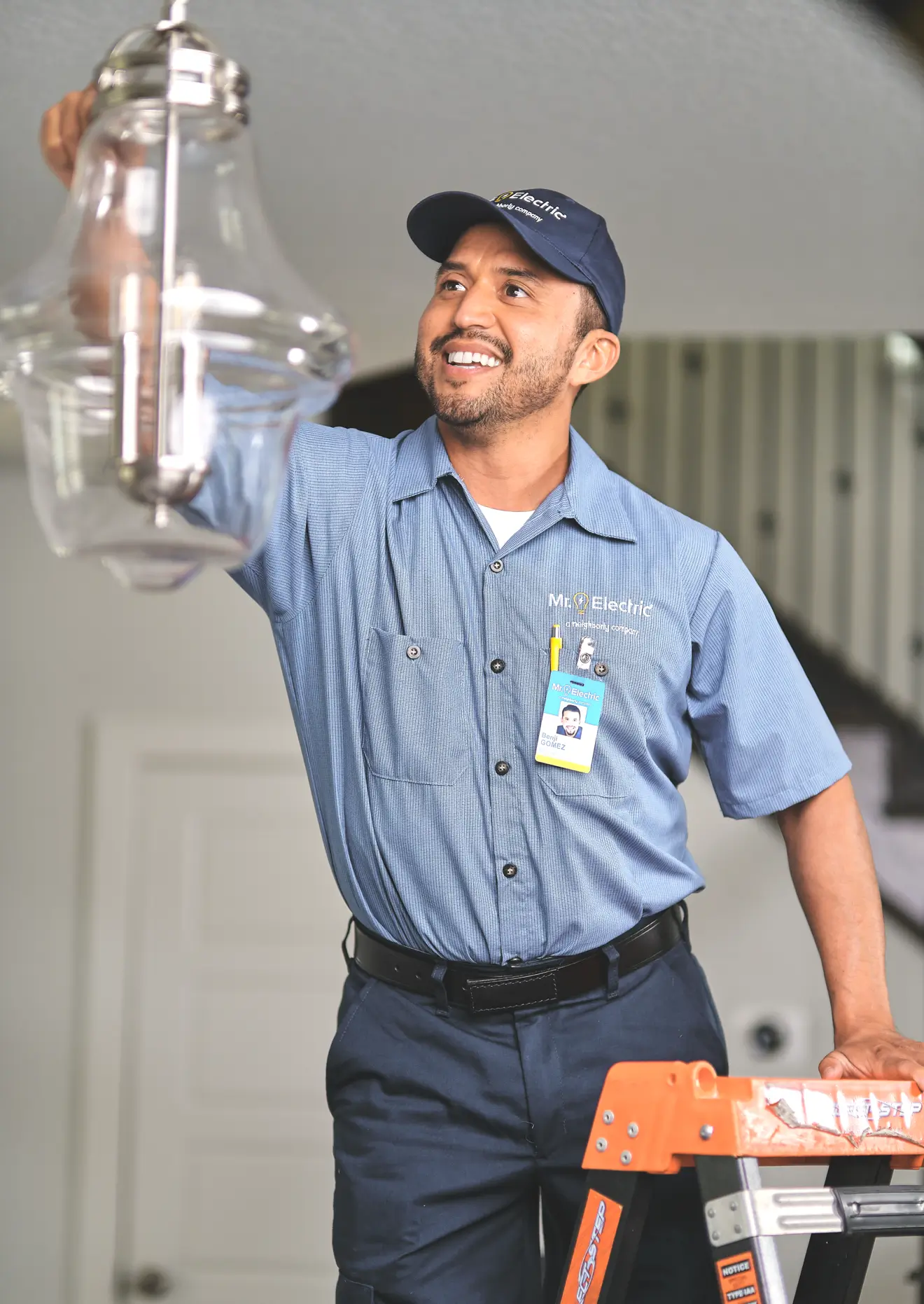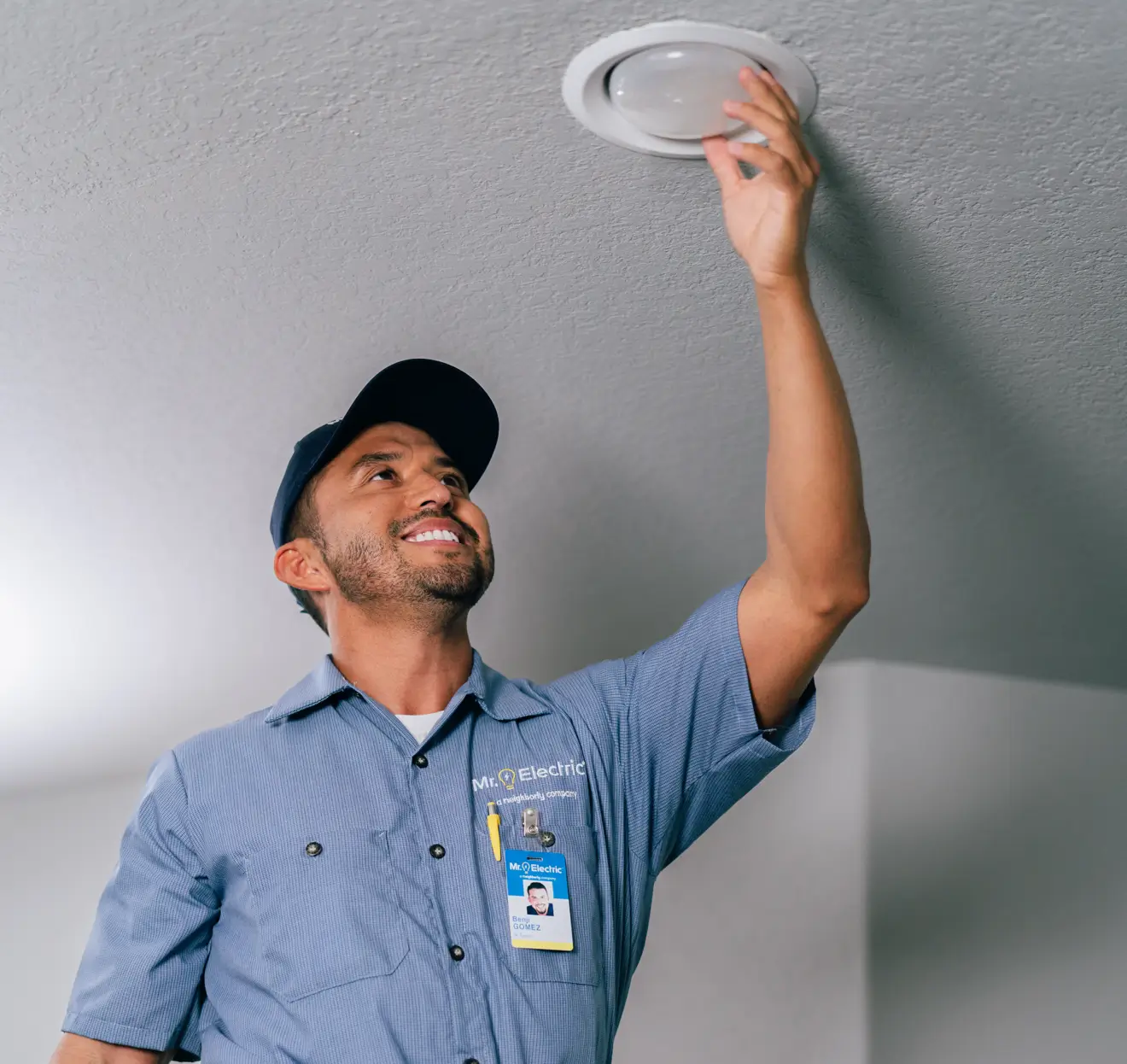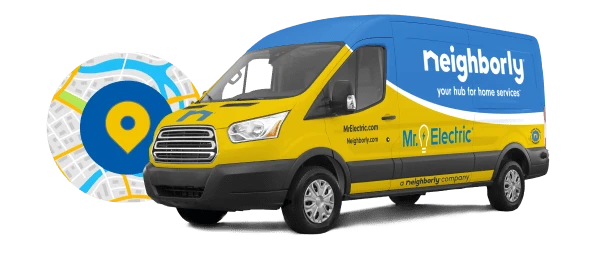About 6 percent of the average residential electric bill goes toward lighting. For commercial properties, the number can be as high as 35 percent! Mr. Electric®'s expert light bulb replacement service can improve the functionality, energy efficiency, and ambiance of any room.
Why Replace Your Light Bulbs?

Types of Light Bulbs We Replace
-
LEDLED bulb replacements from Mr. Electric maintain your energy efficiency and bright lighting. These long-lasting bulbs come in various temperatures for different rooms. We help choose and install LEDs to optimize your fixtures, reducing energy use and replacement frequency.
-
Incandescent bulbsMr. Electric replaces incandescent bulbs quickly and safely. While traditional, these bulbs are being phased out for efficiency reasons. We ensure the right wattage and fit to maintain reliable lighting where LEDs or CFLs aren’t yet installed in your space.
-
Halogen bulbsWe replace halogen bulbs safely, avoiding burns or improper installation that can shorten bulb life. These bulbs provide bright, focused lighting perfect for task lighting or exterior security. We ensure proper wattage and placement for effective, safe illumination.
-
Fluorescent bulbsNeed Compact Fluorescent Lamp or CFL bulb replacement? Mr. Electric ensures proper handling and disposal due to mercury content. CFLs provide energy savings over incandescents. We replace them efficiently to keep your fixtures bright, eco-friendly, and functioning safely throughout your home or business.
-
Smart BulbsMr. Electric installs and replaces smart bulbs, integrating them with your home’s automation system. Enjoy remote control, scheduling, and efficient lighting management. We ensure proper setup so your smart lighting works seamlessly for security, ambiance, and energy efficiency.
-
Specialty Bulbs (appliance, vanity, decorative)Specialty bulb replacement is easy with Mr. Electric. From appliance bulbs in ovens and refrigerators to decorative, vanity, or chandelier bulbs, and those in your electric fireplace, at Mr. Electric, we ensure the right type and wattage are used for safe, effective, and attractive lighting in your fixtures.
The Light Bulb Replacements You Can Trust

All Mr. Electric franchises are locally owned and operated and may offer fewer or more services than those listed here. To learn more about the light bulb replacement service offered in your area, contact the Mr. Electric nearest you for details or a customized on-site assessment.


Join Our Team
“We have the power to make things better.” That’s our mantra, not only for our customers' electrical issues, but also you, a future team member"!

Your Source for Local Home Service Experts
Neighborly brands repair, maintain, and enhance properties — to make life easier and more enjoyable for homeowners. Our consistency and quality work are the basis for everything we do, and are what make us a leader in the home services space, as we constantly strive to "be so remarkable, we become a beloved household name."

